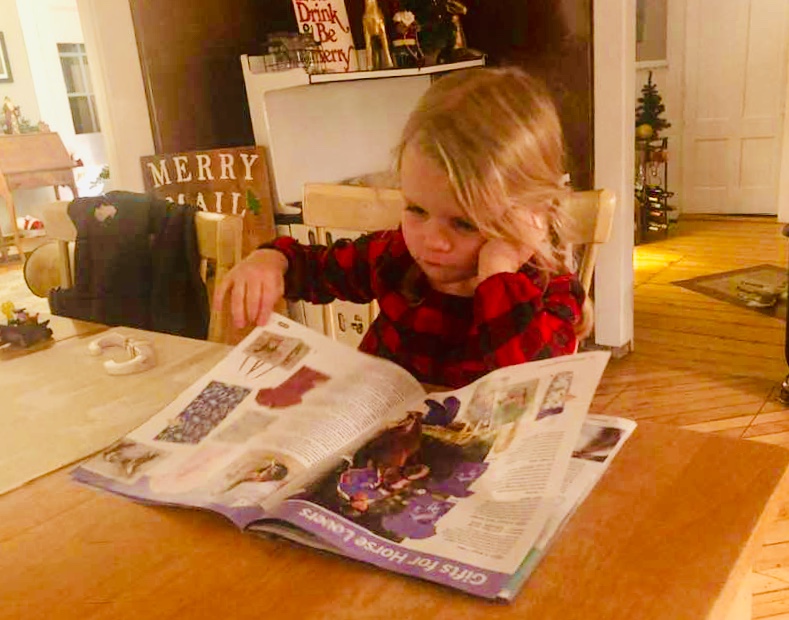
Team Gifford offers tips to reduce stress, eat well, and shop smart
Ever feel like you need a holiday from your holiday? You’re not alone. In a recent survey of 2,000 Americans, 68 percent of them reported that they consider the holiday season, including Thanksgiving, Hanukkah and Christmas, to be “stressful.” Shopping, crowds, long lines, cooking, buying presents (and knowing what to buy) rank among the top contributors to “holiday burnout,” according to survey conductors, a condition that they say one in three of us will experience before Dec. 25.
So what’s a merrymaker to do? Here, Gifford Health Care providers and staff offer insights on how to cope whether you are avoiding unhealthy indulging, navigating dysfunctional family relationships, or figuring out worthwhile gifts.
Prevent Holiday Stress This Holiday Season
Jeffrey Nowlan, MA, LCMHC, LADC, is a licensed mental health counselor with experience providing individual, group, and family therapy to a diverse population in outpatient settings. The following is his advice on how to get through the holiday season with less stress relating to family, budgeting, shopping, cooking, and time management.

Little Ava prefers catalog shopping during the holiday season. Thanks to mom Bethany Silloway, our community relations coordinator, for sharing the pic.
Holiday Shopping
- Ask people what they want instead of scouring the earth to find the “perfect” gifts.
- Shop early, when there is more of a selection.
- Stick to your gift budget.
Planning Family Get-Togethers
- Buy prepared foods instead of cooking everything from scratch.
- Ask others to bring their favorite dishes.
- Cook and freeze foods ahead of time.
Scheduling Time with Family and Friends
- Simplify holiday commitments and traditions. Discuss with your family which traditions are most important to you and to them. It’s OK to re-evaluate past traditions.
- Allow time for yourself. Remember to do things that you enjoy.
- Avoid time crunches by making plans to visit some friends and family soon after the holidays.
- Don’t over-schedule yourself. Allow enough time to relax and recover after visiting with others.
- Tell family members about your commitments so you are not struggling against their expectations.
- Travel after rush hour. When driving long distances, give yourself time to stop and rest.
Pausing Before the Holiday Spread
- Avoid overeating and overdrinking, especially alcoholic beverages.
- Avoid starving yourself in anticipation of eating at holiday parties. This approach can lead to eating too much of the wrong foods.
- Continue to exercise and watch your diet.
Managing Your Time
- Set priorities and let go of impossible goals.
- Stop to enjoy the fruits of your labor.
- Don’t spend all of your time planning activities for your family. You might end up feeling drained and unappreciated.
- Take the time you need to finish tasks that are important to you. Don’t try to complete everything at once.
- Ask others, including the kids, to help you complete chores.
- Rest when your body tells you to.

Thanks, Stacy, for the great tips!
Eat Your Way Through the Holidays
Stacy Pelletier, a registered dietician, joined the Gifford nutrition team 11 years ago and has been providing nutrition expertise to community members ever since. Here are her (25!) tips and tricks for surviving the holidays surrounded by yummy treats without packing on the pounds.
- Be realistic. Instead of trying to lose weight during the holidays, set a goal of weight maintenance.
- For dessert, try baked apples with cinnamon and a sprinkle of sugar instead of apple pie. Invite your guests to make their own parfait with colorful sliced fruit and low-fat yogurt.
- Try not to arrive at a party hungry. Eat a light but filling snack, such as yogurt or a piece of fruit, before getting there.
- Try to stay at least an arm’s length away from the food table before and after eating to prevent nibbling.
- Before heading through the buffet line, circle around the food table so you can choose the food you want to eat.
- Position yourself at the end of the buffet line; you will be less likely to go back for seconds.
- Bring a vegetable tray with a low-fat dip and you will be guaranteed to have a low calorie, low-fat snack.
- Limit fried food. Choose steamed, grilled, baked, or broiled items instead.
- You don’t have to pass up your favorite dessert, but remember to indulge in moderation. Have just a taste, or share dessert with someone.
- Use the lower-fat versions of sour cream, cream cheese, yogurt, milk, and evaporated milk.
- Freeze leftovers in portion-size containers so you can enjoy favorite items after the holidays are over.
- If you overeat at one meal, then go light at the next. It takes 500 calories per day—or 3,500 calories per week—above your normal/maintenance consumption to gain one pound. It is impossible to gain weight from one piece of pie!
- To cut down on fat in baked goods, you can replace half the butter, shortening, or oil with unsweetened applesauce, mashed bananas, or prune puree.
- Plan on not dieting after the New Year. The anticipation of food restriction sets you up for binge-type eating over the holidays
- Enjoy your favorite holiday treats but take a small portion, eat slowly, and savor the taste and texture.
- If you keep it, then you will eat it. Only make enough to serve the number of people present and send leftovers home with guests.
- When eating, aim to eat all meals or snacks off of a small plate or napkin instead of mindlessly munching while socializing, watching TV, or when in a hurry.
- If you know that you have three or four events in one week, pick one of those events during which you will splurge and then be conscious to scale back at the other events.
- Be assertive: Don’t feel as though you have to say yes to everyone that offers you food and drink. If you’re not hungry, then simply say so.
- Visualize yourself eating healthy prior to attending the holiday meal. “If you can dream it, you can do it.”
- Chew gum while preparing food to prevent nibbling.
- Instead of seconds try mouthwash or gum first.
- Physical activity helps to relieve holiday stress, regulate appetite, and burn some of the extra calories we indulge in. Make being active part of your holiday tradition. Have fun walking and talking with family and friends after a holiday meal.
- Make the company of those you love the center of your gathering, not the food.
- The bottom line? Enjoy yourself!
Find Great Gifts for the Kids in Your Life
Carrie Wright, director of Robin’s Nest, Gifford’s on-site daycare, has a unique understanding of early childhood education and firsthand experience as a mom. Here are her suggestions for gifts that will engage young minds in learning and fun all year long—including toys that won’t get tossed into the toy chest after only a few hours of play.
Ages 0-5
- Clothing
- Education fund deposits (They may not thank you now, but they will later.)
- Deposit money into a bank account in the child’s name
- Memberships to a local zoo, museum, etc.
- A special outing (This could include anything from a food treat to a trip to a museum.)
- Paying for lessons (music, sports, arts)
- Ingredients and special decorations for cookies or other baked goods
- Baking kit
- Toolkit
- Binoculars (as part of a bird-watching kit)
- Craft box
- Butterfly kit
- Bug-catching kit
- Homemade coupon books
- Special bag/suitcase for taking a trip
- Personalized books
- Personalized blanket (Add a photo to it, or put their name on it.)
- Open-ended toys (wooden blocks)
- Stuffed animal with a book
- Dress-up clothes
- Kitchen kit (using repurposed kitchen items)
- Piggy bank
- Musical instruments
- Bath towel with a hood that turns you into something else (frog, duck)
- Fort and play tent supplies
- Sleds
Ages 6-12
- Passes to theme parks
- Education fund deposits (They may not thank you now, but they will later.)
- Movie passes
- Educational software (if computer or tablet is available)
- Sports equipment
- Special clothing item
- Special outing (ball game, bowling, ice skating, pottery studio, hiking, snowshoeing)
- Tickets to a sporting event
- Pay for lessons (music, sports, arts)
- Wool for finger-knitting
- Sketch book
- Audio books
- Magazine subscriptions
- Subscription kits (cooking, science, social studies)
- Binoculars (bird watching/bug catching)
- Snowshoes
- Camera and photo albums
- Board and card games
- DIY kits (include materials for lots of crafts)
- Shoes
- Musical instruments
- A watch
- Calendar (personalized or character)
- Homemade coupon books
- Puzzles
- Fort and play tent supplies
- Sleds/tubes
Ages 13-18
- Plane tickets to visit friends or family
- Education fund deposits (They may not thank you now, but they will later.)
- Deposit money into the teen’s bank account
- Movie passes
- iTunes credit
- Takeout gift cards
- Sports equipment
- Special clothing item (skateboarding pads, hiking backpack)
- Special outing (bowling, a ball game)
- Pay for lessons
- Take them shopping
- Photo album (documenting memories from when they were little)
- Camera
- Luggage
- Calendar (personalized or character)
- Puzzles
- Sewing machine
- Model kits (cars, airplanes)
- Backpack
###

